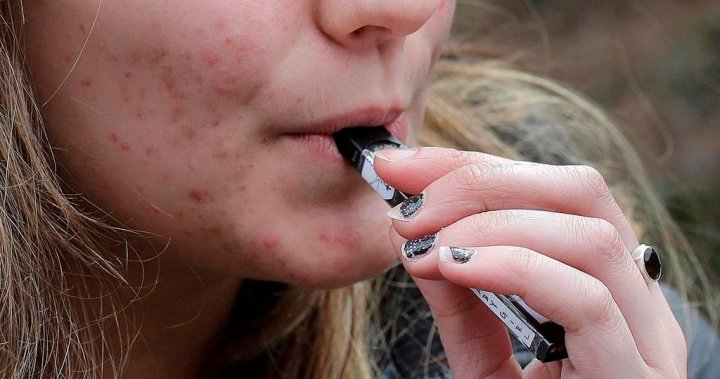A recent study published in the Tobacco Control journal has found that e-cigarette products, or vapes, may contain toxic metals such as lead, uranium, and cadmium that are particularly harmful to children and teens. The ingestion of these metals can lead to systemic harm in young individuals, including cognitive impairment, behavioral disturbances, respiratory complications, cancer, and cardiovascular diseases. Exposure to lead is associated with significant effects on cardiovascular and neurocognitive functions, while cadmium exposure increases the risk of osteoporosis and various types of cancer.
The study comes at a time when vaping has become increasingly popular among young people around the world. In Canada, while smoking rates have been declining, vape use has spiked in recent years. Statistics Canada data revealed that approximately one in seven youth aged 15 to 19 reported vaping in the past month in 2022, with one in 15 reporting daily use. Additionally, a 2021 Canadian Tobacco and Nicotine Survey found that 61% of youth who vaped had never tried a tobacco cigarette.
The study analyzed urine samples from 200 teens in the United States, with findings showing that frequent vape users had higher levels of lead and uranium in their urine compared to occasional users. Additionally, those who opted for sweet vape flavors had higher levels of uranium in their urine than those who smoked mint or menthol flavors. While previous research has found correlations between e-cigarette consumption and toxic metals, the study notes that the findings can vary significantly depending on the specific brand and type of vaporizer used.
In response to the growing concerns around vaping and its impact on youth, the Canadian government has taken steps to regulate the industry. In 2021, the federal government announced plans to ban most vape flavors and reformulate existing flavors with approved ingredients. Some provinces and territories have already implemented bans on flavored vapes, with Ontario recently announcing measures to ban vaping devices in schools and allocate funds for security upgrades to prevent access to these products by students.
Dr. Kieran Moore, Ontario’s chief medical officer of health, emphasized the importance of protecting students from preventable threats posed by vaping. Canada’s mental health and addictions minister, Ya’ara Saks, expressed support for the measures taken by Ontario and highlighted ongoing efforts at the federal level to restrict vape-related advertising, limit flavors and nicotine content, and regulate online availability of vaping products. Saks emphasized the government’s commitment to taking all necessary steps to safeguard young Canadians from the potential harms of vaping.


